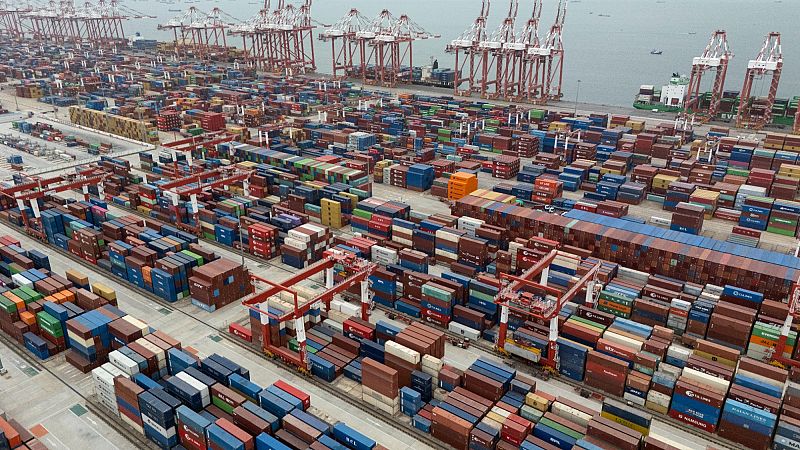
The United States ranks a middling 61st out of 122 countries in an index gauging barriers to trade - whether through tariffs or non-levy based restrictions - published this week by the Tholos Foundation, a US think tank founded by former president and free marketeer Ronald Reagan in the 1980s.
Its position was dragged down the list as a result of its non-tariff barriers to trade and the limited number of trade agreements struck by the country, the index found.
A report by the think tank accompanying the index said that the list was compiled before Trump's notorious 'Liberation Day' announcement of so-called 'reciprocal tariffs' - subsequently suspended for a 90-day hiatus pending negotiations. If these tariffs were crystallised, the US would plummet to near the bottom of the rankings - 113th overall and would be last on the tariff pillar, Tholos found.
In its index, the Tholos assessed both direct and indirect trade barriers across 122 countries, covering regions that account for 80% of the global population and 97% of the world’s Gross Domestic Product (GDP).
Hong Kong, Singapore, and Israel topped the rankings for having the fewest trade barriers, while Russia, India, and Indonesia ranked lowest due to their heavy use of restrictions.
“The Index finds countries with lower trade barriers experience more prosperity, economic freedom, and environmental performance,” the foundation said in a press release.
According to the findings, although the 18 most open countries represent just 5.35% of the world’s population, they generate 21% of global GDP. By contrast, the three most restrictive countries hold 21% of the population but contribute only 6% of global GDP.
The index also shows that lower-income countries in south Asia and central eastern Europe rely more on tariffs, while higher-income countries use more non-tariff barriers and have increasingly restricted digital trade. Lower and middle-income countries in south Asia and Latin America impose the most restrictions on services.
The index is based on four pillars: tariffs, services restrictions, non-tariff barriers, and trade facilitation—the latter assessing behind-the-border conditions that affect trade.
Critics of the European Union
The index assesses negatively the effect of EU regulation on trade. “The regulations in the Digital Markets Act, Digital Services Act, AI Act, the proposed Cloud Certification Scheme, and others from the European Union impose restrictions that discriminate against content, market size, as well as the physical location of data storage and processing,” Tholos said in the press release.
It claimed these regulations have caused foreign companies to limit their hardware and software releases in the EU market, resulting in voluntary export restraint, where exporters shy from a jurisdiction to avoid regulations.







